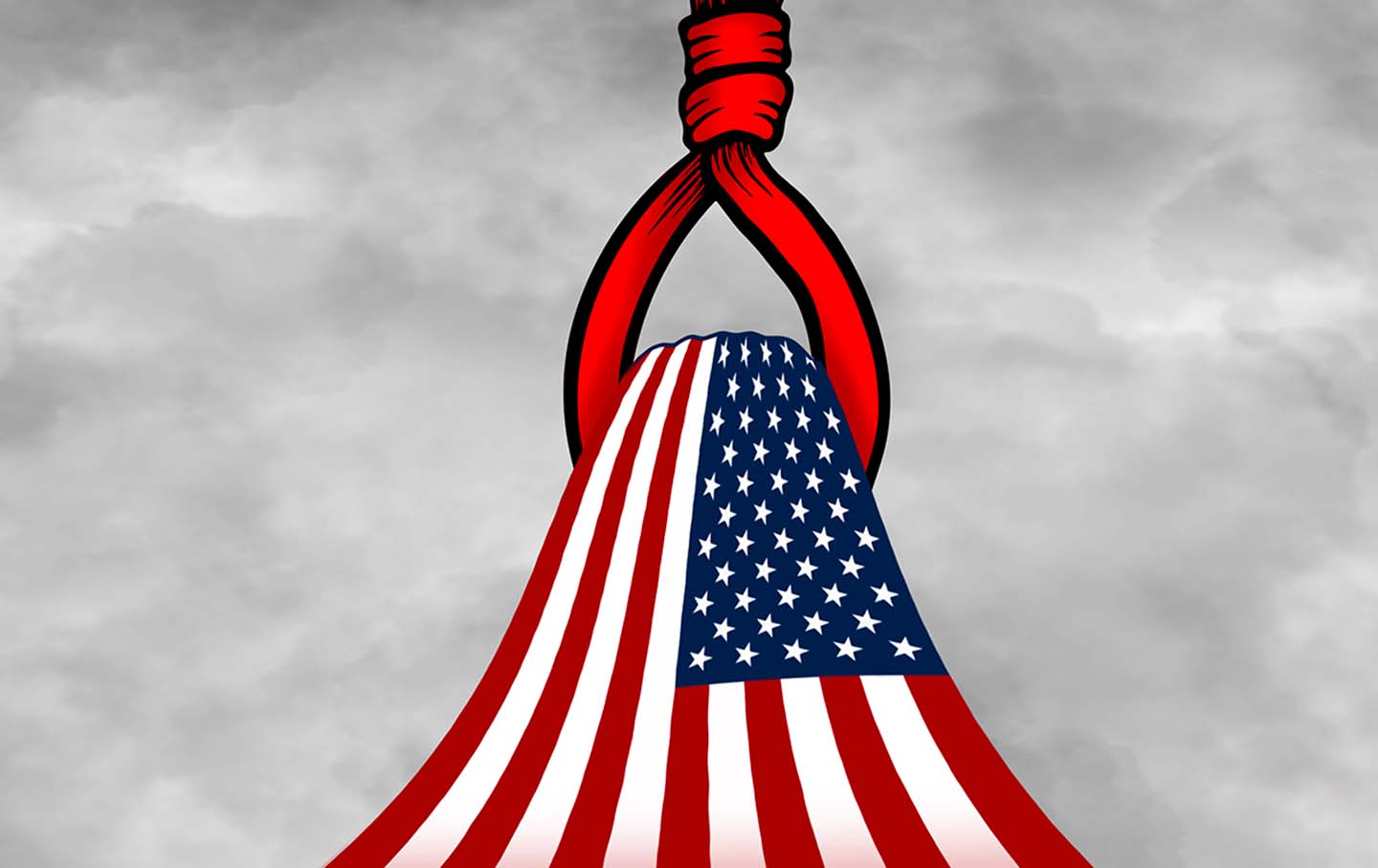Column
/
December 18, 2024
But between candidates who are defenders of the system and those who are anti-system. Democrats lost because they allowed Trump to be the only voice of antiestablishment rage.

In 2016, American politics was turned upside down by the Obama-Trump voter, but in 2024 we have an even stranger phenomenon: the AOC-Trump voter. Trump won the first time thanks to many voters (making up an estimated 13 percent of his support) who had previously voted at least once—and often twice—for the first African American president. In his third presidential bid, Trump drew unexpectedly robust support in congressional districts that also supported strongly left-wing Democrats such as Ilhan Omar and Rashida Tlaib. Strikingly, Trump improved his standing by more than 11 percent over 2020 in the district of another member of “the squad,” Alexandria Ocasio-Cortez, even as the congresswoman herself won by a landslide with 68.9 percent of the vote.
The existence of AOC-Trump voters might puzzle those who view politics solely along the left-right spectrum. After all, Trump is a man of the hard right and AOC is a fiery leftist.
But left-right isn’t the only relevant taxonomy in politics. Ben Kawaller of The Free Press interviewed AOC-Trump voters for an illuminating TikTok video in which some expressed anger at inflation while others complained about Kamala Harris’s record as a hard-nosed prosecutor. One African American woman said, “Kamala Harris is a puppet.” When Kawaller asked, “A puppet of who?,” the woman responded, “A puppet for the system.”
In that succinct phrase, “a puppet for the system,” we get to the heart of why Donald Trump won in 2016 and 2024—both times running as an anti-system politician channeling the anger of voters who are deeply frustrated by the status quo. In those elections, the choice was between Trump the disruptor and rivals who presented themselves as defenders of a basically good system—one that might need some tinkering around the edges but required no fundamental changes. In 2020, Trump himself had the misfortune of being the face of the unpopular status quo: a nation not just ravaged by Covid but also wracked by a massive uprising against police violence. In that election, Trump wasn’t the enemy of the Man; he was the Man. This helped Joe Biden (bolstered by his co-option of Bernie Sanders’s economic populism) win the largest popular-vote total in American history: 81 million votes. When all the votes have been counted for 2024, Harris will have about 75 million—a decrease of roughly 6 million.
Not just in America but in other advanced democracies around the world, the most salient cleavage right now is not left versus right but system versus anti-system. In his important book Anti-System Politics (2020), Jonathan Hopkin, a political scientist at the London School of Economics, argues that the 2008 global financial crisis broke the neoliberal consensus that had dominated Western countries since the 1980s and opened the door to politicians on both the left and right who challenged the status quo. During the period of neoliberal ascendancy, the model of market competition held sway, Hopkin writes, and “the main political parties progressively converged around this market liberal model, emptying electoral democracy of much of its meaning, as established political elites increasingly resembled a ‘cartel’ offering a limited range of policy options.”
When neoliberalism imploded in 2008, the path was set for anti-system politicians of the right (Trump, Matteo Salvini in Italy, Viktor Orbán in Hungary) preaching xenophobia and economic nationalism, but also for anti-system movements of the left (Podemos in Spain, Syriza in Greece, Bernie Sanders’s insurgency within the Democratic Party) advocating egalitarian economics.
Current Issue

As Hopkin wisely observes, “Rather than dismissing anti-system politics as ‘populism,’ driven by racial hatred, nebulous foreign conspiracies, or an irrational belief in ‘fake news,’ we need to start by understanding what has gone wrong in the rich democracies to alienate so many citizens from those who govern them.”
In American politics, Republicans were taken over by an anti-system movement (Trump’s MAGA), while Democrats defeated and subsumed their anti-system challenge (some major Sanders policies were adopted by Biden, but the working-class rage articulated by Sanders and his most fervent supporters was not echoed by party leaders).
Strikingly, in response to Trump, both Hillary Clinton and Kamala Harris adopted pro-system rhetoric that cast them as defenders of a status quo threatened by a dangerously unstable interloper. Both candidates cited the support they received from Republicans (Christine Todd Whitman and John Warner for Clinton, Liz and Dick Cheney for Harris) as well as from retired military officers and Wall Street titans (Michael Bloomberg, Mark Cuban). While Democrats were touting their endorsements from these pillars of the establishment, Trump’s own gestures of bipartisanship were in the opposite direction: He gathered around himself former Democrats who’d been marginalized by the party for heterodox (and at times undeniably crackpot) opinions on vaccines (Robert F. Kennedy) and foreign policy (Tulsi Gabbard).
In a postelection lament, Sanders accurately noted, “The Democrats ran a campaign protecting the status quo and tinkering around the edges. Trump and the Republicans campaigned on change and on smashing the existing order. Not surprisingly, the Republicans won.”
Responding to this populist anger, Bill Clinton, the diminished but still cocky prince of neoliberalism, said that by “demonizing all establishments and all people who wear a tie…to work and have a good education, we are breaking down the legitimacy of…people who actually know things that are very important for us today and very important for our continued growth and prosperity and harmony.”
The Democrats now must choose. Like Bill Clinton, they can double down on being the party of the establishment. Or they can finally adopt the politics of Bernie Sanders, which means not just a few reforms but a wholesale attack on plutocracy as the enemy of democracy.
With a hostile incoming administration, a massive infrastructure of courts and judges waiting to turn “freedom of speech” into a nostalgic memory, and legacy newsrooms rapidly abandoning their responsibility to produce accurate, fact-based reporting, independent media has its work cut out for itself.
At The Nation, we’re steeling ourselves for an uphill battle as we fight to uphold truth, transparency, and intellectual freedom—and we can’t do it alone.
This month, every gift The Nation receives through December 31 will be doubled, up to $75,000. If we hit the full match, we start 2025 with $150,000 in the bank to fund political commentary and analysis, deep-diving reporting, incisive media criticism, and the team that makes it all possible.
As other news organizations muffle their dissent or soften their approach, The Nation remains dedicated to speaking truth to power, engaging in patriotic dissent, and empowering our readers to fight for justice and equality. As an independent publication, we’re not beholden to stakeholders, corporate investors, or government influence. Our allegiance is to facts and transparency, to honoring our abolitionist roots, to the principles of justice and equality—and to you, our readers.
In the weeks and months ahead, the work of free and independent journalists will matter more than ever before. People will need access to accurate reporting, critical analysis, and deepened understanding of the issues they care about, from climate change and immigration to reproductive justice and political authoritarianism.
By standing with The Nation now, you’re investing not just in independent journalism grounded in truth, but also in the possibilities that truth will create.
The possibility of a galvanized public. Of a more just society. Of meaningful change, and a more radical, liberated tomorrow.
In solidarity and in action,
The Editors, The Nation
More from The Nation

Congress narrowly averted a shutdown, but the whole episode offers a sneak peak of the oligarchy in store.
Chris Lehmann


Elon Musk torpedoed a bipartisan deal to avoid a government shutdown. Trump one-upped him by demanding that the bill hike the debt ceiling. A new bill failed. Who’s in charge here…
Joan Walsh

Gerontocracy, pro-establishment politics and deception by Democratic Party insiders all helped elect Donald Trump.
Jeet Heer

It’s time for me to delve back into all things Trumpworld.
Sasha Abramsky

Donald Trump’s upcoming presidency jeopardizes democracy, human rights, and the environment. Is the country on a path to self-destruction?
OppArt
/
Andrea Arroyo




Leave a Comment